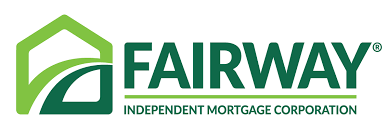Lender LendingTree rating and “best of” category Lender review


Refinance loansRead our review


VA loansRead our review


Jumbo loansRead our review


Online mortgage experienceRead our review


FHA loansRead our review


Home equity loansRead our review


Mortgage loan varietyRead our review
![]() Learn more about how we chose our list of the best mortgage lenders.
Learn more about how we chose our list of the best mortgage lenders.
Buying a home in Washington, D.C., is not significantly different from the process in other states, although the D.C. area’s surrounding states may have policies that differ from those inside the district.
In Washington, D.C., homebuyers are not required to hire an attorney for assistance in their transaction, although they may choose to use one. To close on the purchase of property, buyers and sellers can work with a title company or an attorney capable of title work.
Home sellers are required to disclose any property defects relating to water and sewer systems, insulation, structural systems, plumbing, electrical, HVAC, infestation by rodents or wood-destroying insects, appliances, alarm and intercom systems, garage door operations, fixtures and more.
Foreclosure may be judicial or non-judicial. In a judicial foreclosure, the foreclosure process is managed in court. In a non-judicial foreclosure, a lender can launch foreclosure proceedings with a borrower outside of court.
When it comes to property ownership, Washington, D.C., is not a community property district and offers joint property owners “equitable distribution” in the event of divorce or partnership dissolution. This means courts determine what is marital property and what is separately held, and distribute assets accordingly.
In Washington, D.C., real estate transfer taxes are typically 1.1% of fair market value for properties worth $400,000 or less, or 1.45% of fair market value for properties with higher values. This means transfer taxes on a $400,000 property would be $4,400.
Typical property taxes are $0.85 per $100 of property value — or $8.50 per $1,000. This means property taxes on a $400,000 home would be $3,400 per year.
Washington, D.C., residents who are seniors, disabled, active-duty military or non-U.S. citizens working on certain types of visas may be eligible for property tax exemptions.
The conforming loan limit for mortgages purchased by government-sponsored enterprises Fannie Mae and Freddie Mac is $726,525 for one-unit properties in Washington, D.C. This is higher than the $484,350 limit for one-unit homes that applies to most of the United States; pricier areas such as D.C. have higher limits. D.C. is expensive enough to boast the ceiling loan limit announced by the Federal Housing Finance Agency for 2019.

Homebuyers in Washington, D.C., can tap the District of Columbia Housing Finance Agency to learn about their eligibility for programs that offer down payment or other purchase-related assistance to make buying more accessible. The DC Department of Housing and Community Development also offers resources.
DC Open Doors provides down payment assistance for up to 3.5% of a home’s purchase price, in the form of a loan with a 0% interest rate that is due if you sell, refinance or move out within the first five years. Homebuyer education is required for first-time buyer participants who are applying for HFA Preferred or HFA Advantage loans. The maximum home loan is $484,350, which is the conforming loan limit for most areas of the country.
The program is open to first-time or repeat buyers with household incomes at or below $140,640, a credit score of 640 or higher and a debt to income ratio not to exceed 45% to 50%, depending on loan type.
Many first-time buyers in D.C. can claim a federal tax credit of 20% of their mortgage interest paid each calendar year.
The program is open to first-time buyers or those buying in a targeted area, or using a veteran’s one-time exception, who are purchasing single-family residences and who satisfy income limits and sales price maximums.
The Home Purchase Assistance Program (HPAP) offers financial assistance of up to $80,000 and closing cost assistance of up to $4,000 to first-time homebuyers in Washington, D.C. Loan repayment is monthly for moderate-income borrowers but may be deferred (until a home sale) for lower-income borrowers.
The program is available to first-time buyers who earn either below 80% or between 80% and 110% of median income. The program prioritizes applications from existing residents who live on a low income, are elderly, disabled or displaced.
Local government employees who have worked at least one year at their jobs may be eligible for down payment and closing cost assistance for their first homes in Washington, D.C.
Assistance takes the form of both no-interest loans and grants for homes priced at or below $636,150. Government employees are eligible for loans up to $20,000 and matching funds grants up to $5,000. First responders are eligible for grants up to $10,000, if they agree to a five-year service commitment, and additional matching funds grants up to $15,000. The homes must be primary residences to be eligible.